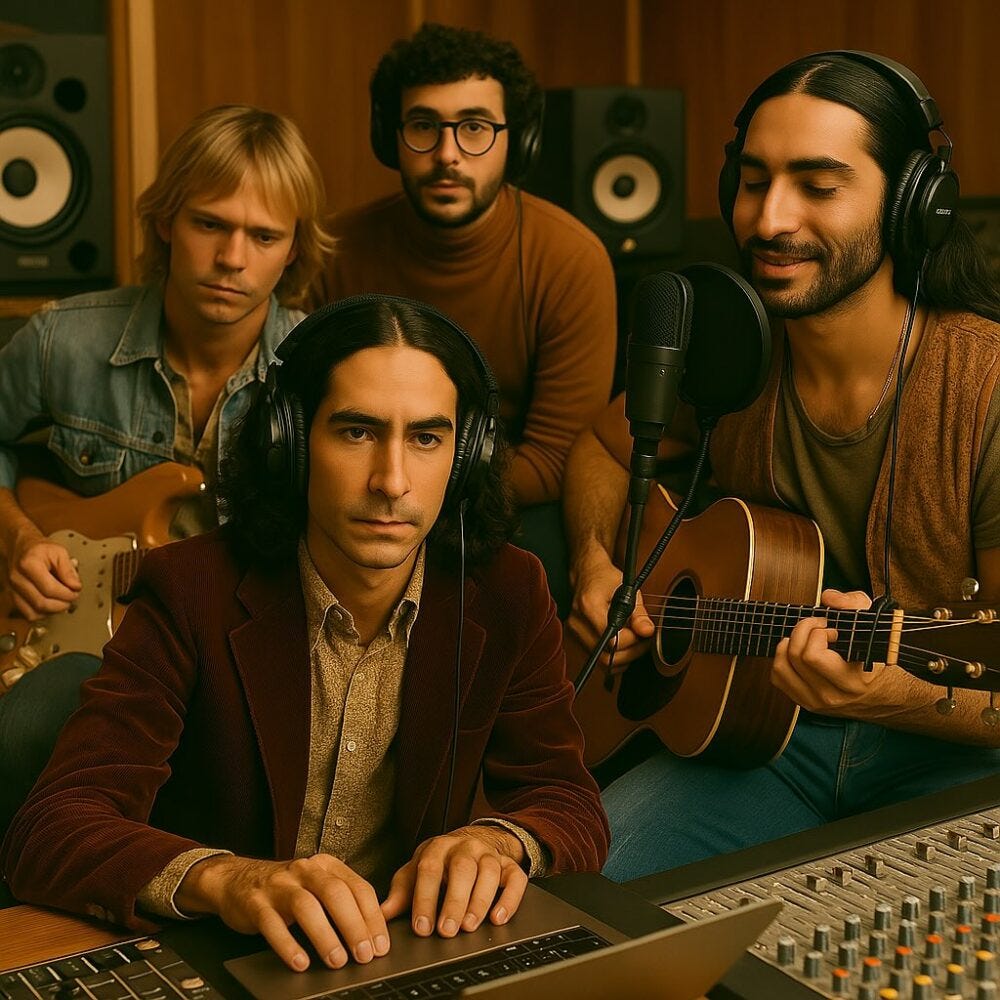I was horrified to discover that, of all the musicians in the world, Spotify’s CEO and founder Daniel Ek chose Bruno Mars to perform at his wedding. This, I think, says all you need to know about the depth of the soul of the man who decides which music gets listened to by 675 million people.
Spotify is the dominant player in music streaming and the primary platform for new music discovery, both through its editorial playlists and its powerful recommendation algorithm. This means that inclusion on one of Spotify’s playlists can make or break a musician’s career. The power to playlist ultimately lies with Spotify but also, more indirectly, with the cabal of major labels—Universal, Warner, and Sony—with whom Spotify struck an early Faustian bargain: access to their catalogs in exchange for preferential treatment and elevated visibility on the platform, which has, to this day, secured them a disproportionate share of royalties. It’s estimated that 80% of songs on major playlists come from these labels’ rosters, concentrating streams and payouts into the hands of already-established players, while sidelining independent musicians.
Reading Liz Pelly’s bombshell article in Harper’s a few months ago, I was even more horrified to find out that, for years, under its so-called “Perfect Fit Content” (PFC) program, Spotify has been systematically replacing real artists’ songs with low-cost stock music—often under fake artist profiles—on its popular mood playlists like “chill,” “jazz,” and “peaceful piano,” in order to reduce the royalty rate they pay out to musicians. And when Spotify’s playlist editors, many of whom were genuine music lovers, began to take issue with this practice, the company replaced them with staff who had fewer ethical qualms with the PFC model.
As Pelly writes:
Spotify’s “Ambient Chill” playlist had largely been wiped of well-known artists like Brian Eno, Bibio, and Jon Hopkins, whose music was replaced by tracks from Epidemic Sound, a Swedish company that offers a subscription-based library of production music—the kind of stock material often used in the background of advertisements, TV programs, and assorted video content.”
Nobody wants this. Listeners don’t want this. Artists don’t want this. Even the labels don’t want this. Bringing a heap of Slopmusik into the world actively makes the world worse, and yet, for Spotify, it makes perfect financial sense.
Spotify’s shamelessness is a textbook example of what Cory Doctorow calls “enshittification,” a process by which platforms, once they’ve captured a critical mass of users, begin degrading the quality of their product in order to extract more value. For Spotify, this looks like mass-produced muzak. For Meta, this looks like an AI graveyard of four-legged mutant babies with their faces on their torsos and despondent war veterans carrying signs that beg scrollers-by for a virtual thumbs-up—LIKE IF YOU CARE, LIKE IF YOU HAVE A HEART—fooling only hapless Boomers and, naturally, other AI bots.
But we cannot speak about culture without speaking about capital. Capital aligns incentives to bring certain things, and not others, into reality—even cultural products. It’s why most Italian Renaissance paintings are religious—since, back in Those Olden Days, the Catholic Church was the primary patron of the arts—and why Marvel movies dominate 21st-century Hollywood. Today, much of culture is also created by social media users, distributed through online platforms, and filtered by algorithms designed to keep you scrolling and sell you stuff.
Because culture depends on the infrastructure in place to create and distribute it, those who control the platforms and their algorithms exert disproportionate influence on the way culture plays out, even when their decisions appear, at face value, to be purely economic.
When cultural infrastructure is optimized solely for profit, quality is sacrificed in the name of financial efficiency. And this is especially likely to happen if people who don’t care about music are the ones deciding how it gets listened to, and people who don’t care about people are the ones mediating relationships between them.
An algorithm that aims to minimize the probability of a skipped track is a poor substitute for a human curator, whose goal is to develop a listener’s taste by exposing them to unfamiliar works that challenge the limits of their preferences. Spotify’s algorithm actually works exactly in reverse, treating taste as a data profile to be satisfied as efficiently as possible, and in the process, narrowing the listener’s field of experience to what’s already familiar. In a way, it optimizes us, too, training us to expect only the expected, to become as frictionless as the music we’re served.
You know what performs poorly on the Spotify algorithm? Music that’s genuinely expressive, experimental, or difficult to categorize. You know what performs great? AI slop music, like the discography of The Velvet Sundown, an AI-generated psych rock band with nearly half-a-million monthly listeners, their artist profile complete with hallmark ChatGPT copy and all: “you don’t just listen to them, you drift into them.”
Algorithmic curation gives us not music as art, but music as content. It gives us AI music generated en masse with the explicit purpose of gaming the algorithm. It gives us music made not to move us, but to manipulate a distribution system.
The silver lining is, I suppose, that in chasing profit for profit’s sake, with no concern for the quality of its own product nor respect for the soul of humanity—all while finding creative new ways to pay artists less while pocketing the change—Spotify is beginning to eat itself alive. This, I’d wager, is not a great strategy for long-term survival.





i didn't like your essay. for starters, bruno mars' singles are very good, and his album with anderson paak is a great collab.
i hate the term enshittification and how it absolves the stupid user. lazy users hear the aforementioned shitty playlists because they're lazy. things get enshittified because users refuse to curate music by themselves, looking through sites such as rym or discog, not because the evil ceo wants more money. his thirst for money is a mousetrap, not a bullet we can't dodge.
"Nobody wants this. Listeners don’t want this. Artists don’t want this. Even the labels don’t want this. Bringing a heap of Slopmusik into the world actively makes the world worse, and yet, for Spotify, it makes perfect financial sense."
clearly, someone wants this. they got metrics, and they wouldn't be wasting their time on the slop playlists if the users weren't so lazy.
i look up albums. i save them. i listen to albums. once they end, the algorithm brings me music; if it's good, i listen, if it's not, i skip, and i've found a couple of gems this way. once i feel i'm listening to the same stuff, i look up new albums. and so on.
however, i don't deny: the spotify ceo is probably a ghoul, just like every other ceo, but the fault isn't solely his! the majority of the people are stupid, and they'll find ways to harm the world regardless if they're nudged towards it or not.
https://bohemianlayabout.substack.com/p/you-normies-destroyed-social-network
i wrote a piece on that. it pisses me off how this scatologic term has been widely used.
"Spotify’s algorithm actually works exactly in reverse, treating taste as a data profile to be satisfied as efficiently as possible, and in the process, narrowing the listener’s field of experience to what’s already familiar"
This isn't really much different from how commercial radio worked. You got the biggest hits and maybe some up and coming stuff, but it was always what was familiar and divided up by genre format. The algorithm is doing what it was designed to do, which is keep you listening. There are loads of ways to find new music on Spotify, but the listener has to take the steps of searching a bit. Expecting to find a bunch of new things outside your normal listening habits by letting the algo cruise is lazy and not what it was designed for in the first place.